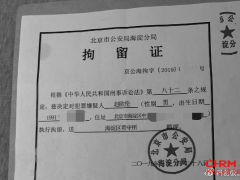With China’s significant adjustments of COVID-19 policy at the end of 2022 and its emphasis on economic development, China’s manufacturing is expected to soar in 2023.
“China is one of the global leaders in manufacturing. We believe series of favourable policies recently released by the Chinese government will boost high-end manufacturing and green industry, thus bringing more opportunities to talents in the field,” said Jessica Wang, Managing Director of Hays China.
According to the CPC annual Central Economic Work Conference held in December 2022, China will enhance the global competitiveness of traditional industries and speeding up the R&D and promotion of cutting-edge technologies in various sectors including new energy, artificial intelligence, biomanufacturing, green and low carbon development, and quantum computing, hence setting the tone for China’s manufacturing industry in 2023 onward.
High-tech industry will embrace prosperous development prospect
In recent years, China’s manufacturing industry has been moving towards a high-tech, intelligent, and green model, while seeking to step away from high pollution and poor working environment. Such pivot has also brought change to the talent recruitment of the industry.
The 20th National Congress of the Communist Party of China noted that China will carry out industrial foundation reengineering projects and research projects on major technologies and equipment, support enterprises that use special and sophisticated technologies to produce novel and unique products, and move the manufacturing sector toward higher-end, smarter, and greener production.
“Neo-industrialization is an important strategy for China to be on par with the mid-ranking developed countries, while the development of advanced manufacturing is the key to achieve the goal,” according to Wang Jinzhao, head of Industrial Economics Research Department of the Development Research Center of the State Council. “Talent is the key to scientific and technological innovation for the industry. It is necessary to speed up the training of talents, offer them more incentives, attract overseas experts, and support enterprises to recruit and reserve global talents,” he added.
Undoubtfully, talents play a decisive role in advanced manufacturing. Nowadays, enterprises have raced to provide better welfare package to attract more talents.
The salary of senior talents tops the chart in China’s advanced manufacturing industry. According to the Beijing Municipal Human Resources and Social Security Bureau salary data of 2022, the median annual salary in intelligent/advanced manufacturing industry ranks the second among all job categories of managerial personnel and the third among that in all job categories of technical personnel, reaching 553,300 yuan and 289,200 yuan respectively. Finance, digital economy, and software and information service are among the peers of high-income sectors.
“Advanced fields like intelligent vehicles, industrial equipment, medical devices, and advanced manufacturing develop rapidly compared to traditional manufacturing sectors, leading to the increasing demand of talents,” said Jessica Wang. “An increase of 50% or even 100% of salary is common through job-hopping in hot sub-sectors, while 10% to 20% salary increase is more usual in other industries, reflecting the tight demand for talents,” she noted.
According to Jessica Wang, tech talents who are urgently needed by advanced manufacturing industry are mainly seasoned overseas talents with graduate degrees. As China’s advanced manufacturing is still at the early stage of development, there is a significant imbalance of talent supply and demand.
For some bottleneck areas, for example, chip manufacturing, have problems including lack of practitioners, high employment threshold, shortage of local R&D talents, and insufficient attraction of overseas talents. It fundamentally caused the current situation of fierce competition for R&D talents, and the paradox of “booming industry but short in hand.”
Multinational enterprises remain bullish on Chinese market with increasing localizing effort
In the last three years, caused by the impact of pandemic and geopolitical tensions, some multinational companies in China adjusted their business strategies, suspending their expansion plan in China or transferring some production lines to Southeast Asia. Hays consider such phenomenon a temporary turbulence, for China cannot be easily replaced as the country with the most comprehensive supply chain in the world.
“Multinational enterprises will be more confident about Chinese market in 2023. Recent policies released have stressed the importance of high quality opening up by clearly pointing out that China will actively expand its markets, strengthen the protection of intellectual property rights and foreign investment, and grant foreign enterprises with national treatment,” Jessica Wang said. “Since some production lines transferred to Southeast Asia are mainly labour-intensive industries, relevant technical and managerial talents still need to be dispatched from China to guide operations, which reflects the advantage of seasoned talents of China’s manufacturing sector,” she added.
For instance, the electric vehicle magnate Tesla recently promoted the Tom Zhu Xiaotong, the President of Tesla China, to global CEO. On the one hand, it reflects that multinational manufacturing enterprises represented by Tesla attach great importance to the Chinese market. On the other hand, it shows that Chinese talents in manufacturing sector is being valued more significantly.
“The narrowing of the wage gap between Chinese and foreign employees reflects the respect that multinational manufacturing companies show for the Chinese market and for Chinese talents. In the past, it was common to see big salary gaps between foreign employees and Chinese employees in the same position in multinational enterprises. A decade ago, the post of Quality Manager or Quality Director, for example, might provide an annual salary of 2.5 million to 3 million yuan for a foreign employee ten, while that for Chinese employee was in the range of 1 million to 1.5 million yuan. The salary gap is apparently narrowing gradually today,” Jessica Wang pointed out.
Other than the localization of top talent recruitment and promotion of foreign enterprises, R&D and supply chain are also being localized rapidly. According to a report released by KPMG, localization has become the top-priority for German companies in China. The report noted that the R&D localization of multinational countries would have a strong technology spillover effect on China’s economy, which would promote the cultivation of local talents, promote the competitions of local firms on innovations, and improve the research capacity of domestic universities and research institutes through close cooperation of companies, academic institutions, and research partners.
Besides, such spillover effect has created favourable environment for multination enterprises to increase investment in China. In July 2022, global chemicals giant BASF announced its approval to comprehensively promote investment projects in China. By 2030, it will invest ten billion euros to build Zhanjiang Verbund site, which will ultimately be the third-largest BASF site worldwide. Texas Instruments also announced in 2022 the expansion of its Chengdu manufacturing site and aim to fully operate this year.
“Inflow and landing of advanced manufacturing projects reflects rational and profitable decisions by foreign investors. China now has strong advantages to attract foreign investment. On top of supply chain and market size, the nation also is attractive for its efficiency of public service, ongoing optimization of business environment, and well-trained and seasoned talents like skilled workers, engineers and researchers,” said Zhang Fei, leading research in foreign investment at Ministry of Commerce.
“It takes time for manufacturing firms to form positive corporate culture and construct effective staff system, which would attract more talents to join in in the long run. For the job hunters in this area, Hays suggests them to improve their market sensitivity and personal core competitiveness through learning, which would enable them to seize opportunities at appropriate time,” Jessica Wang said.
 手机版|
手机版|

 二维码|
二维码|






